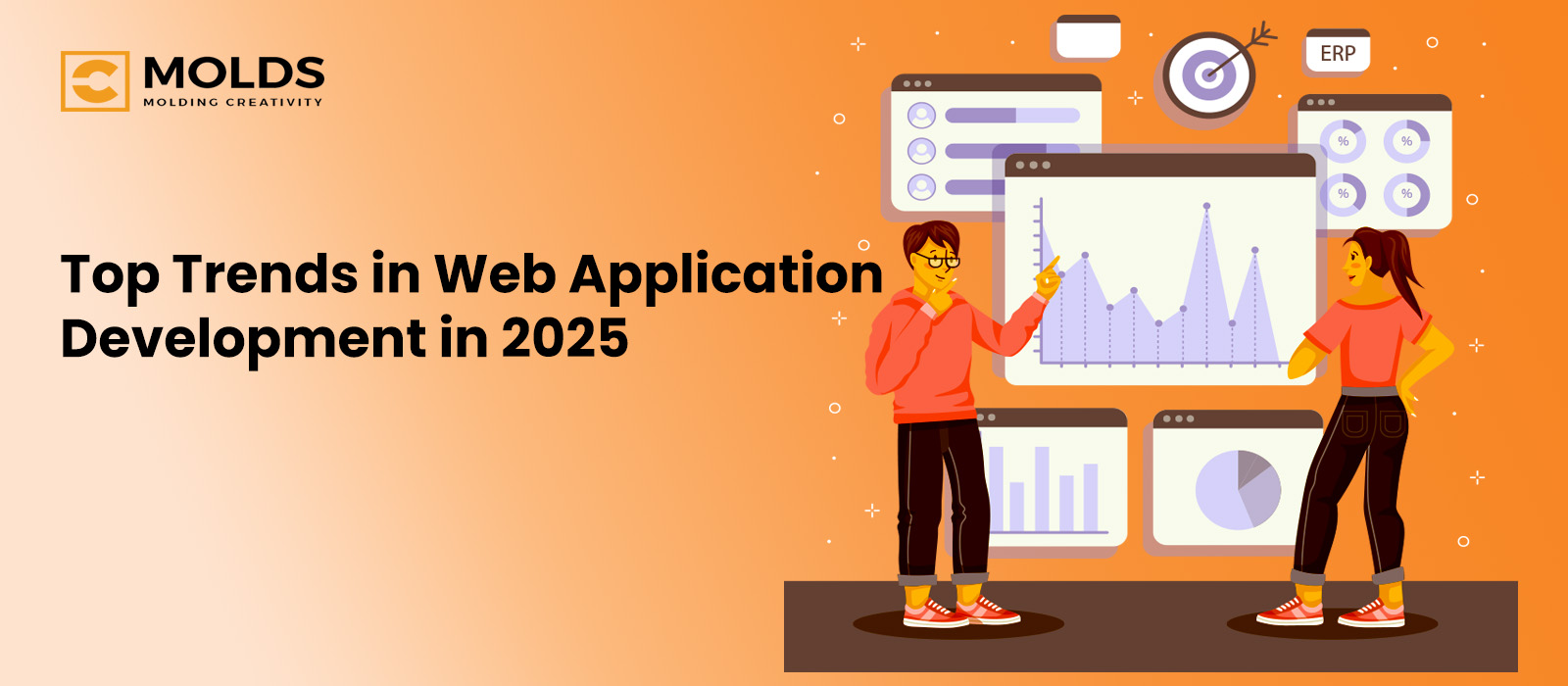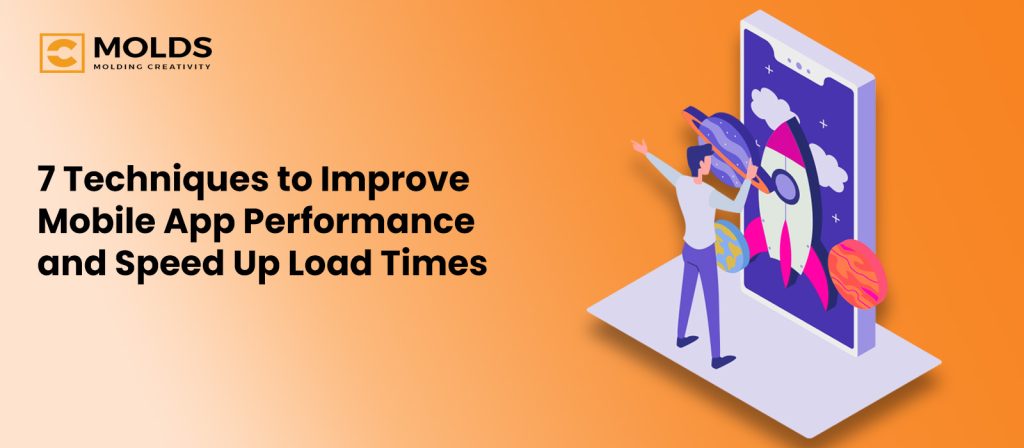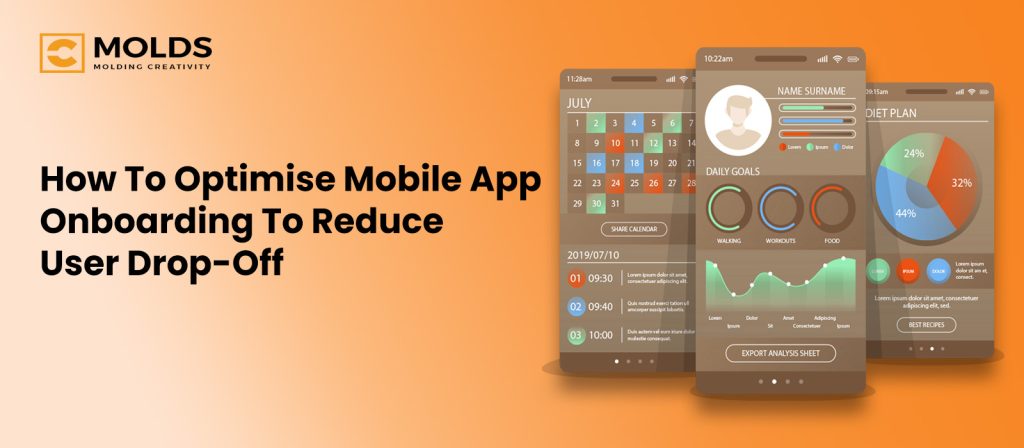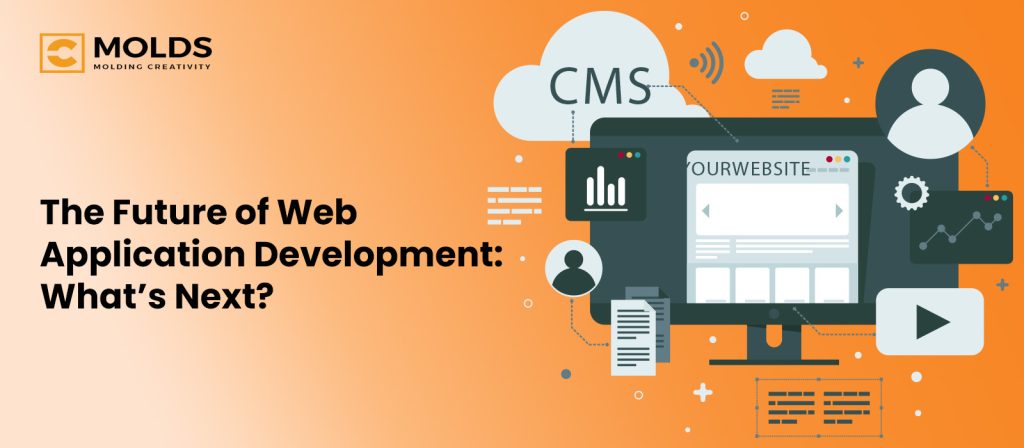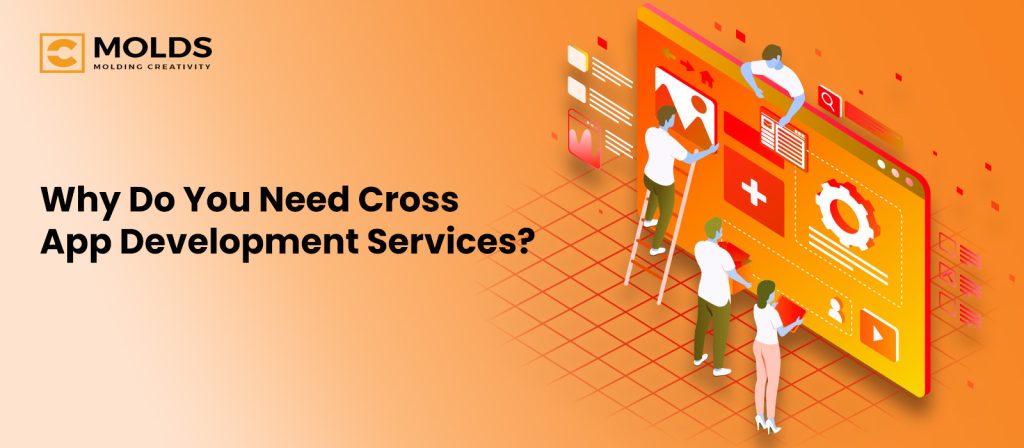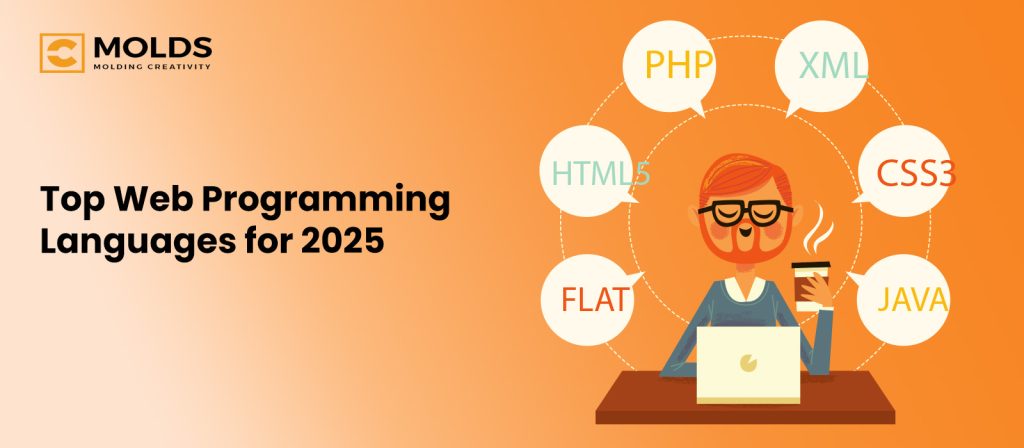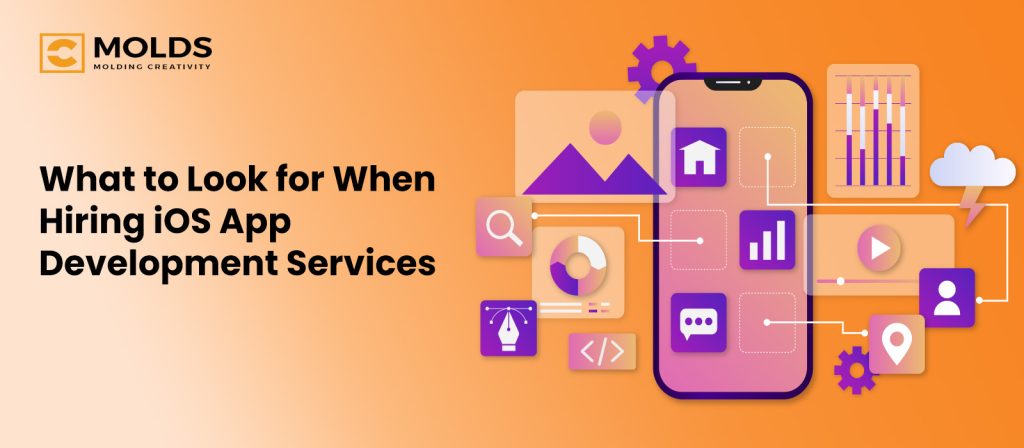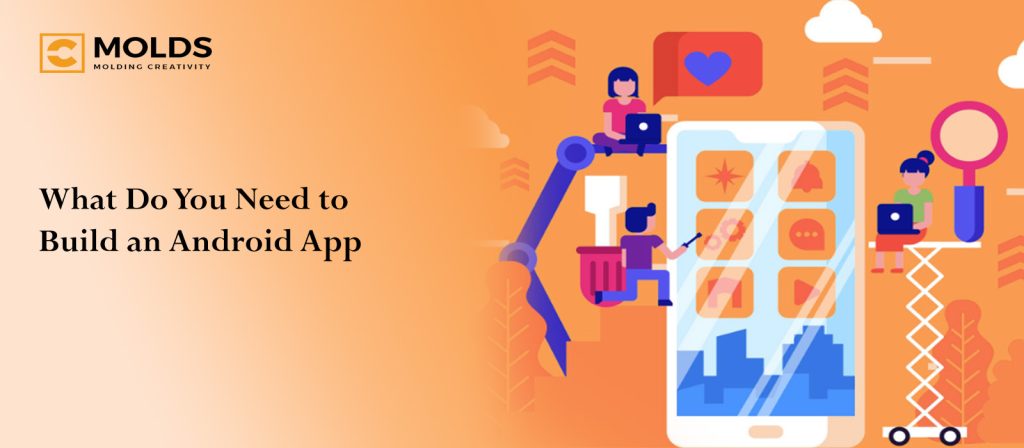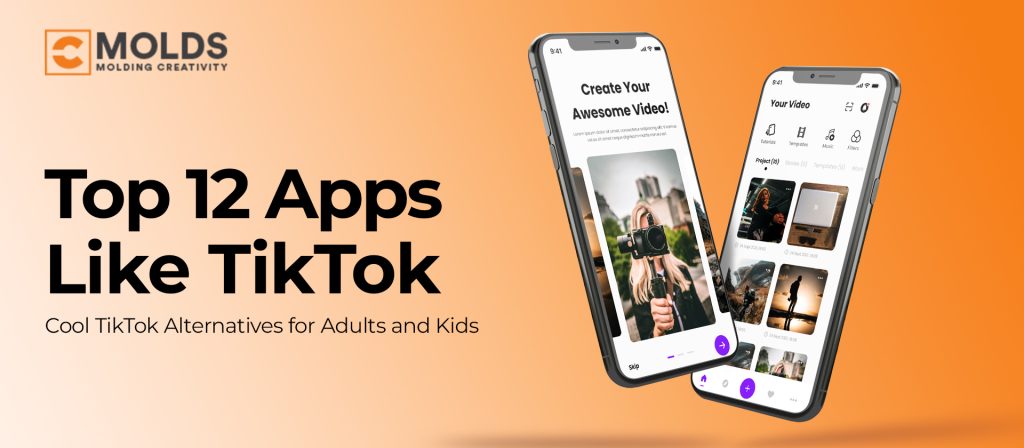Web application development is one area where the rapid pace of the digital world is most noticeable. The technologies enabling these solutions are constantly changing in response to user and business demands for quicker, smarter, and more user-friendly digital experiences. With artificial intelligence, immersive technologies, and cross-platform adaptability driving innovation, 2025 is looking to be one of the most revolutionary years for web applications.
From start-ups looking to introduce a new product to established companies seeking smooth scalability, we at CMOLDS have witnessed firsthand how the quick speed of change directly impacts businesses. Comprehending these patterns is crucial for decision-makers as well as developers who want to produce captivating apps that endure.
AI-Powered Personalisation
Artificial intelligence is now the foundation of contemporary online experiences, not just a trendy term. In 2025, AI-powered personalisation will continue to refine how web apps interact with users. AI makes sure every user experience feels distinct, from product recommendations in e-commerce to predictive analytics in healthcare portals.
This development is especially important for sectors like gaming. AI can be used by a mobile game development company to analyze player behavior and make real-time adjustments to challenges, levels, and even graphics. The success of web applications across industries will be determined by their capacity to customize not only interfaces but also essential features.
Progressive Web Apps (PWAs) Becoming the Standard
Although they are not brand-new, progressive web apps are anticipated to gain popularity by 2025. PWAs enable users to access applications with near-native performance without requiring app store downloads by fusing the best features of the web and mobile platforms. Additionally, they facilitate faster load times and offline access, both of which greatly enhance the user experience.
This change is especially exciting for developers. Consider a company that develops Android game apps and uses PWA capabilities to produce browser-based games that are just as fast and effective as traditional apps. Higher adoption rates and improved accessibility across devices can result from less installation friction.
Also read: Top Web Programming Languages
The Rise of WebAssembly
The way developers create and deliver high-performance applications is being revolutionized by WebAssembly (Wasm). Wasm gives web apps near-native speed by allowing code written in languages like C, C++, or Rust to run directly in the browser. More sophisticated and resource-intensive applications, like design platforms, 3D modeling tools, and high-performance games, are anticipated to be powered by this technology by 2025.
For companies considering game app concepts, this is revolutionary because it enables developers to produce dynamic, visually stunning experiences without sacrificing functionality. The distinction between desktop and web applications will become increasingly hazy with Wasm.
Integration of AR and VR
Virtual reality (VR) and augmented reality (AR) are examples of immersive technologies that are no longer only used in specialized fields. It is anticipated that more web apps will incorporate AR and VR capabilities by 2025, offering immersive entertainment, educational simulations, and interactive shopping experiences.
A mobile game development company, for instance, can create browser-based games that immerse players in the action by superimposing augmented reality elements over real-world settings. Similar to this, companies in the retail or real estate industries can use AR-enabled web applications to provide customers with a more engaging experience prior to their decision to buy.
Also read: AR/VR App in Mobile Apps
API-First Development
Connectivity is essential to the digital economy. To provide seamless services, businesses today rely on a variety of platforms and systems. API-first development will be the norm for web application projects by 2025. By using this method, applications are made to be easily integrated with other tools, increasing their scalability and versatility.
For example, an Android game app development company might create APIs that link gameplay data to social media, payment gateways, or third-party analytics platforms. The end effect is a more integrated ecosystem that enhances user experience and developer productivity.
Low-Code and No-Code Solutions
Not every company has the means or know-how to create apps from the ground up. Low-code and no-code platforms are becoming more popular as a result. Without requiring extensive technical knowledge, these solutions will make it simpler for small businesses and entrepreneurs to realize their digital ideas, such as game apps, by 2025.
In order to ensure a quicker time to market, developers are simultaneously using these platforms to quickly prototype and iterate. No-code solutions enable innovation to flourish without sacrificing quality when paired with expert supervision.
Enhanced Cybersecurity
Cyber threats are increasing in sophistication along with web applications. By 2025, security will be a fundamental necessity rather than an afterthought. Multi-factor authentication, sophisticated encryption techniques, and AI-powered threat detection systems are being incorporated into web apps more frequently.
This is particularly important for businesses in the gaming sector. Every mobile app design and development company prioritizes protecting player data, in-app purchases, and intellectual property. In addition to protecting users, a strong security-first strategy fosters long-term loyalty and trust.
The Push for Sustainable Development
Sustainability is becoming a focal point among all industries and the tech and web application development sector is no different. Many businesses are starting to consider energy efficient hosting, optimised code and reduced server load to lower carbon footprints. By 2025, more developers will start to embrace sustainability within their process and this will include many aspects like green hosting, infrastructure, or design.
Even the leading game app development software will be designed to embed sustainability. Sustainable, with efficient performance holding an equal footing with removal of wasteful resource consumption. Businesses operating sustainably will not only contribute on a global scale but will also attract ethically aware customers.
Also read: 15 Step Website Maintenance Checklist
Conclusion
The state of the web application development industry is colorful, fresh, and really evolving by 2025. From personalization with AI to using progressive web apps (PWA) and WebAssembly, AR/VR, and sustainable web development concepts — these trends are influencing how businesses and users operate digitally with each other.
For industries that rely on gaming, these new developments are providing so many opportunities, from refining gaming app concepts to deploying complete fantasy applications using the highest quality game app development software. Whether it’s a mobile game development company that wants the highest level of immersion, or an android game app development company that’s focused on performance, a central component of the development process will be observing and understanding various trends.
CMOLDS believes the state of web applications is more about meaning and less about building them, and it’s about providing secure and engaging experiences in a digital space. Success will be on the side of businesses that leverage the opportunities provided by these trends.


